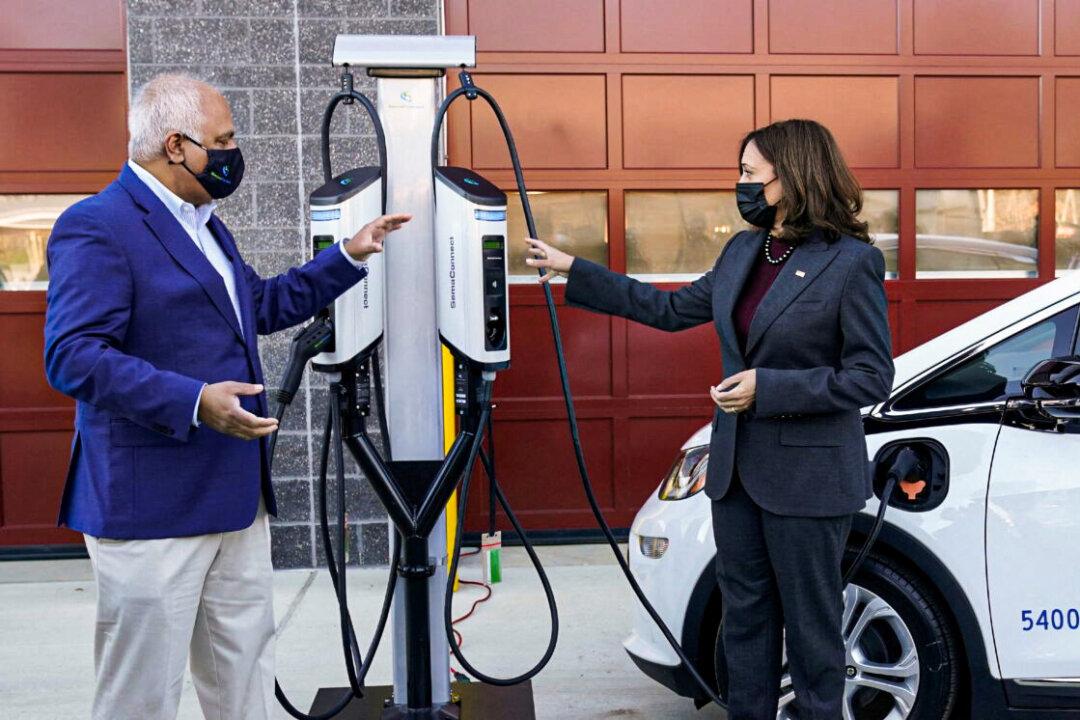Private companies including Volkswagen and Siemens have pledged to invest more than $700 million to boost U.S. manufacturing capacity for electric vehicle (EV) chargers, the White House announced on Tuesday.
The move is set to increase domestic capacity to manufacture more than 250,000 new EV chargers every year and will add at least 2,000 jobs, while making EV charging “more affordable, accessible, and equitable,” according to the Biden administration.




